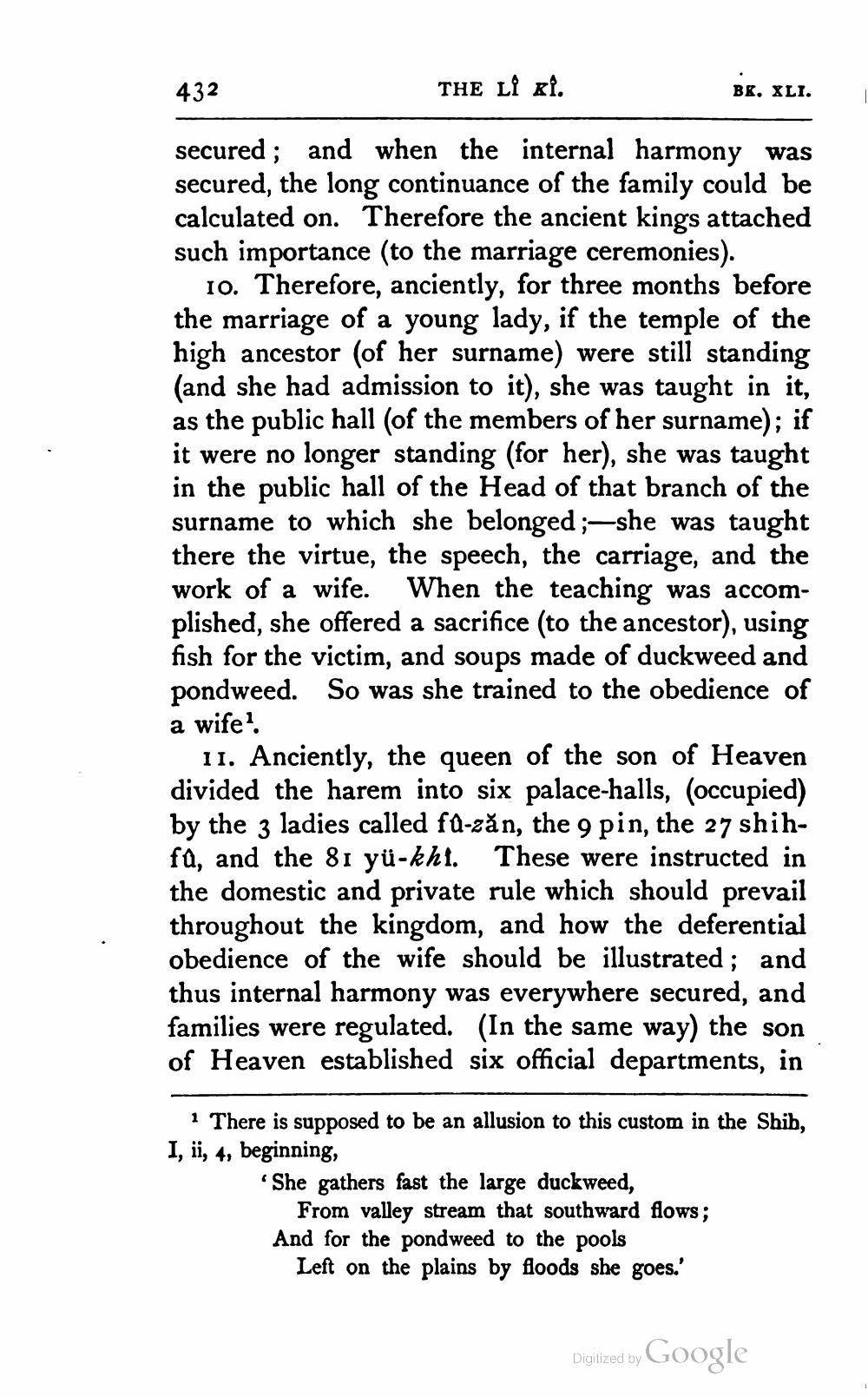________________
432
THE LI ki.
BK, XLI.
secured ; and when the internal harmony was secured, the long continuance of the family could be calculated on. Therefore the ancient kings attached such importance (to the marriage ceremonies).
10. Therefore, anciently, for three months before the marriage of a young lady, if the temple of the high ancestor (of her surname) were still standing (and she had admission to it), she was taught in it, as the public hall (of the members of her surname); if it were no longer standing (for her), she was taught in the public hall of the Head of that branch of the surname to which she belonged ;—she was taught there the virtue, the speech, the carriage, and the work of a wife. When the teaching was accomplished, she offered a sacrifice (to the ancestor), using fish for the victim, and soups made of duckweed and pondweed. So was she trained to the obedience of a wife.
11. Anciently, the queen of the son of Heaven divided the harem into six palace-halls, (occupied) by the 3 ladies called fd-zăn, the 9 pin, the 27 shihfa, and the 81 yü-khi. These were instructed in the domestic and private rule which should prevail throughout the kingdom, and how the deferential obedience of the wife should be illustrated; and thus internal harmony was everywhere secured, and families were regulated. (In the same way) the son of Heaven established six official departments, in
1 There is supposed to be an allusion to this custom in the Shib, I, ii, 4, beginning,
'She gathers fast the large duckweed,
From valley stream that southward flows; And for the pondweed to the pools
Left on the plains by floods she goes.'
Digitized by Google




